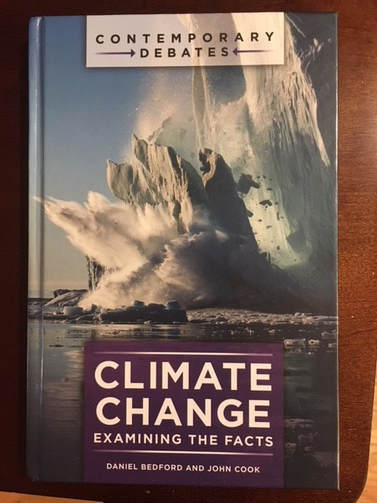
Nonetheless, there are a number of stories in the news these days where people are selecting and highlighting incomplete sets of facts to support the conclusion they desire. So I thought I would highlight one case where I see this happening just as an illustration of why it is wrong to do this. Let me preface my illustration with the following disclaimer: I don't care what you believe about climate change. I DO care, very much, that whatever you believe about climate change is based on your personal evaluation of the best and most complete set of facts available.
When senior government officials claim that specific cold weather events or the phenomenon of expanding ice sheets in Antarctica show that the overall theory of climate change is invalid, they are arguing from a partial set of facts. For instance, the severe cold weather in the eastern United States a few weeks ago sparked a flurry of such statements. But the theory of climate change deals with climate, not discrete weather events. Climate is usually defined as long-term weather patterns or the boundary conditions within which discrete weather events occur. Furthermore, the theory of climate change predicts that those boundary conditions are changing in such a way so as to cause, in the near term, more frequent weather events that are extreme by historical standards. These extreme events include extreme cold weather events and super strong hurricanes (like the ones we saw in Texas, Puerto Rico and Florida last year).
As far as the expanding ice sheets near Antarctica are concerned, the theory of climate change also explains and predicts that this is happening because of more extreme wind conditions in the southern hemisphere, coupled with thinner ice sheets overall. When you include the data from the northern hemisphere, the correct set of facts presents quite a different picture. First, the increase in southern ocean ice is predicted. Second, the average total changes in the earth's polar ice sheets as of 2014 show that, globally, we are losing surface ocean ice around the poles equivalent to two-and-one-half times the area of the state of Mississippi every 10 years.
Again, I don't care if you have a legitimate way to argue against the theory of climate change as long as it includes ALL the facts. A great start on getting those facts is the Contemporary Debates series volume entitled Climate Change: Examining The Facts (cover shown). I have total faith that, if we all work off the most complete set of facts available to us, we can arrive at conclusions that work and that effectively address the challenges we face.

 RSS Feed
RSS Feed
